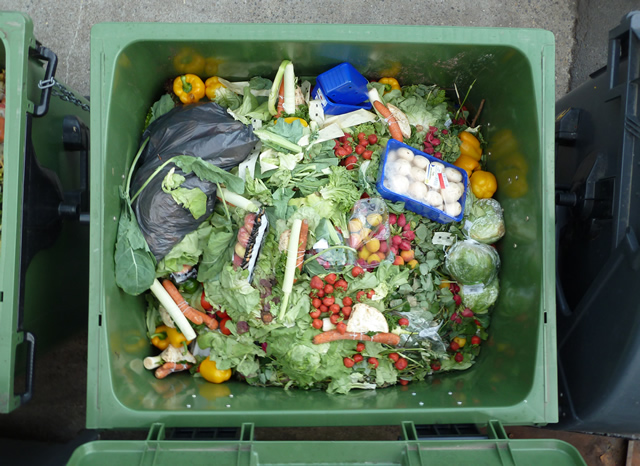
ISRAEL - 2.6 Million Tons of Food Wasted
This year’s report shows a 1.6 billion shekel increase in food waste due to the war.
Leket Israel’s CEO, Gidi Kroch, says the numbers alone make a strong case for action. “We’re throwing away 2.6 million tons of food a year, while 1.5 million Israelis live in food insecurity. That’s a huge market failure,” he told The Media Line.
The report emphasized that nearly half of all wasted food was edible and could have been redirected to vulnerable populations. Leket Israel, which rescued 71 million pounds of food last year, is calling on the government to implement a national food rescue strategy. “Food rescue isn’t just charity. It’s smart economics.” Herzog also pointed to a broader impact: as food prices rise and incomes fall, families cut back on healthier foods. “We saw a 6% drop in fruit and vegetable consumption. Malnutrition increased,” he said.
For Israeli farmers like Yossi Naim of Moshav Pri Gan—located just 4 kilometers from Gaza—the war has devastated agricultural production and helped push food prices higher. “Before the war, I farmed 500 dunams. This year, I planted just 94,” he told The Media Line. “Whole fields of cabbage and fennel were left to rot.”
-themedialine.org, 3 April 2025
Arno's Commentary
The first thing one must consider is that 32% of Israel’s agriculturally productive land lies within the conflict zones, yet production—although not at 100%—continues. Why are there 1.5 million Israelis living with food insecurity? There are multiple reasons, as is the case in other well-functioning, democratic societies.
The UN reports: “Reducing food losses and waste is essential in a world where the number of people affected by hunger has been slowly on the rise since 2014, and tons and tons of edible food are lost and/or wasted every day.
“Globally, around 13.2 percent of food produced is lost between harvest and retail, while an estimated 19 percent of total global food production is wasted in households, in the food service and in retail all together.”
According to a Google search, Israel imports 10% of their annual food requirements. In contrast, Israel’s neighbor Egypt imports 50% of their food requirements, Syria 55%, Lebanon 80%, and Jordan a whopping 98%, according to the International Trade Administration.
When compared to Arab neighbors, Israel is doing rather well.
Another Google search reveals: “Israel is a global leader in agricultural technology, particularly in areas like drip irrigation, precision agriculture, and AI-driven farm management systems, which are crucial for sustainable and efficient farming, especially in water-scarce regions.”
When thinking about the future, our eyes are drawn to Ezekiel 34:27: “And the tree of the field shall yield her fruit, and the earth shall yield her increase, and they shall be safe in their land, and shall know that I am the LORD, when I have broken the bands of their yoke, and delivered them out of the hand of those that served themselves of them.”



